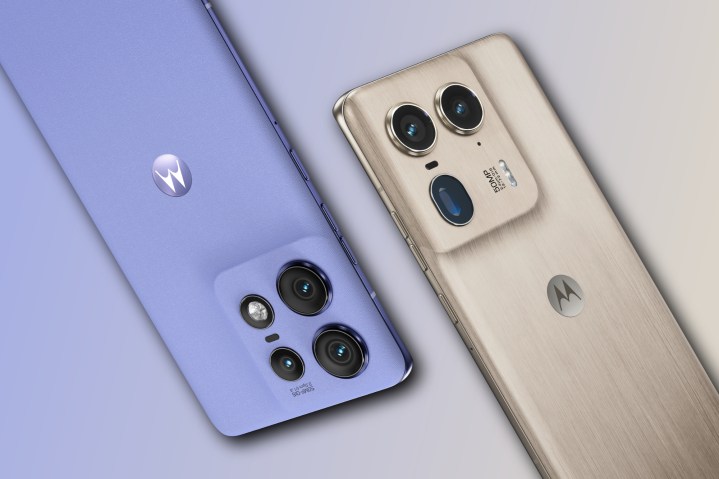
Motorola recently launched two new smartphones: the Edge 50 Pro and Edge 50 Ultra. They’re both higher-end Android phones designed to compete with phones like the Galaxy S24, Google Pixel 8, and others on that level. Although the two Motorola phones have similar names, they have distinct features.
Let’s take a closer look at both models to help you make an informed decision and choose the Motorola Edge 50 that best suits your needs.
Motorola Edge 50 Ultra vs. Edge 50 Pro: specs
| Motorola Edge 50 Ultra | Motorola Edge 50 Pro | |
|---|---|---|
| Weight |
197g |
186g |
| Dimensions |
161.09 x 72.38 x 8.59 mm |
161.23 x 72.4 x 8.19mm |
| Screen size, specs | 6.7″ Super HD (1220p) display 20:9 aspect ratio |
6.7″ Super HD (1220p) display 20:9 aspect ratio |
| Screen resolution | Super HD (2712 x 1220) 446ppi 2,500 nits peak brightness |
Super HD (2712 x 1220) 446ppi 2,000 nits peak brightness |
| Operating system | Android 14 | Android 14 |
| Storage | 512GB or 1TB | 512GB |
| Processor |
Snapdragon 8s Gen 3 Mobile Platform |
Snapdragon 7 Gen 3 Mobile Platform |
| RAM | 12GB or 16GB |
12GB |
| Camera | 50MP Main, f/1.6 50MP Ultrawide, f/2.0 64MP Telephoto, 3x Optical Zoom, f/2.4 50MP Front, f/1.9 |
50MP Main, f/1.4 13MP Ultrawide, f/2.2 10MP Telephoto, 3x Optical Zoom, f/2.0 50MP Front, f/1.9 |
| Connectivity |
Wi-Fi 802.11 a/b/g/n/ac/ax 2.4 GHz | 5 GHz | 6GHz Ultra Wideband Supported USB Type-C port (USB 3.1 gen 2 compatible); DisplayPort 1.4 Bluetooth 5.4 |
Wi-Fi 802.11 a/b/g/n/ac/ax 2.4 GHz | 5 GHz | 6GHz Wi-Fi 6E Wi-Fi hotspot
USB Type-C port (USB 3.1) DisplayPort 1.4 Bluetooth 5.4 |
| Resistance |
IP68 water protection |
IP68 water protection |
| Battery | 4500mAh 125W TurboPower charging Up to 50W wireless charging 10W wireless power-sharing |
4500mAh |
| Colors |
|
|
| Price | From $1,063 | From $744 |
Motorola Edge 50 Ultra vs. Edge 50 Pro: design and display
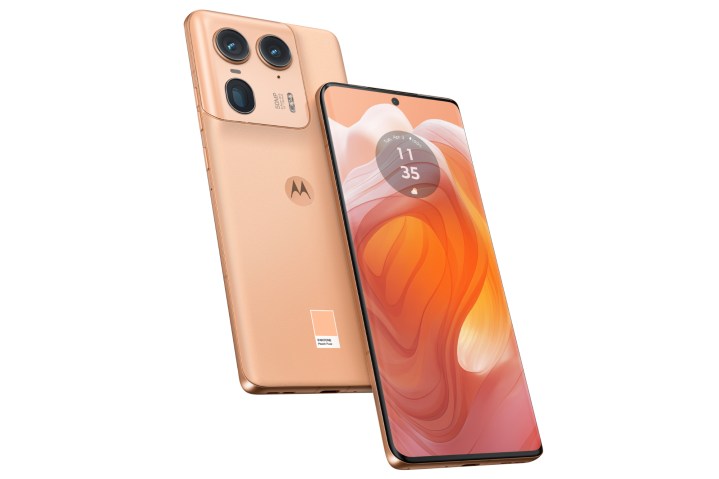
Of the two smartphones, the more premium Edge 50 Ultra will surely turn the most heads. The phone comes in three exciting styles: Forest Gray, Peach Fuzz, and Nordic Wood. These aren’t separated by color alone, however. The first two feature vegan leather backs in a deep, dark grayish/green color and a bright, vibrant orange hue. But there’s more – the Nordic Wood version features real wood, just like old phones in the Moto X series.
All versions of the Edge 50 Ultra feature sandblasted aluminum frames, Corning Gorilla Glass Victus on the display, and IP68 dust and water resistance. That OLED panel display measures 6.7 inches diagonally and offers a 1220p resolution (2712 x 1220 pixels) and HDR10+ support, a 144Hz refresh rate, and 2500 nits of peak brightness.
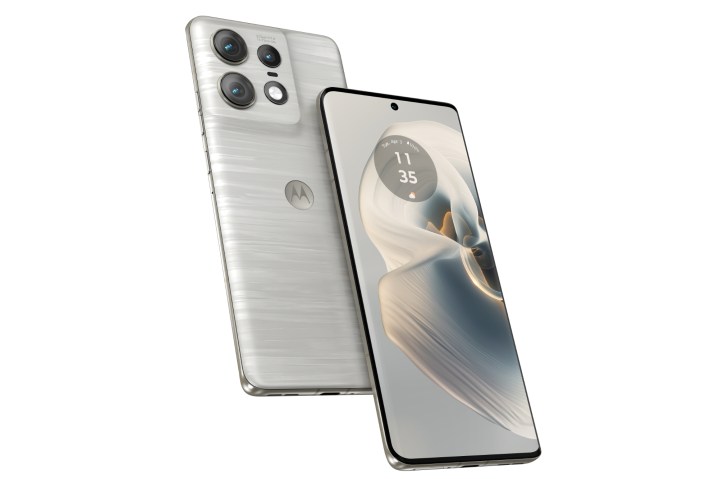
Not surprisingly, at nearly $300 less than the Edge 50 Ultra, the Edge 50 Pro cuts some corners. For example, there’s no wood panel version, although some attractive vegan leather styles are available — including Black Beauty, Luxe Lavender, and Vanilla Cream. Motorola also has a special Moonlight Pearl design that is handcrafted in Italy — and it looks stunning.
Despite the lower price, the Edge 50 Pro offers the same 6.7-inch display as the Edge 50 Ultra, although its peak brightness is lower at 2000 nits. The phone also has an IP68 dust and water resistance rating. Considering the stark price difference, the Edge 50 Pro is remarkably similar in this department.
Motorola Edge 50 Ultra vs. Edge 50 Pro: performance and battery
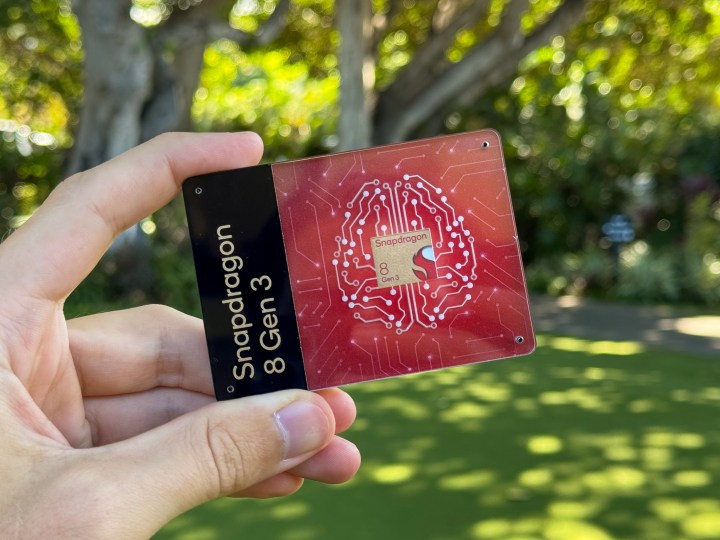
The Motorola Edge 50 Ultra has a Snapdragon 8s Gen 3 chipset, offering 512GB or 1TB of storage and 12GB/16GB of RAM. Its 4500mAh battery supports 125-watt wired charging and up to 50W wireless charging. On the other hand, the Edge 50 Pro features an older Snapdragon 7 Gen 3 chipset, 12GB of RAM, and 512GB of storage. The battery and charging specifications are the same as those of the Edge 50 Ultra.
The main benefit here for the Edge 50 Ultra is the Snapdragon 8s Gen 3, which delivers superior performance compared to the Edge 50 Pro. Put against the Snapdragon 7 Gen 3, the Snapdragon 8s Gen 3 delivers smoother multitasking, faster app loading, and better graphical capabilities for demanding apps and gaming. The Snapdragon 8s Gen 3 boasts a higher CPU clock speed and supports speedier memory bandwidth. You should expect similar battery life on both models, at least according to speed tests.
We don’t expect the Edge 50 Pro to be a slow smartphone, as the Snapdragon 7 Gen 3 is still a very capable chipset. And its RAM, storage, battery, and charging specs are incredibly similar to those of the Edge 50 Ultra. The Ultra is the phone to get if you want the most performant Motorola phone possible, but you aren’t missing out on too much by opting for the Pro.
Motorola Edge 50 Ultra vs. Edge 50 Pro: cameras
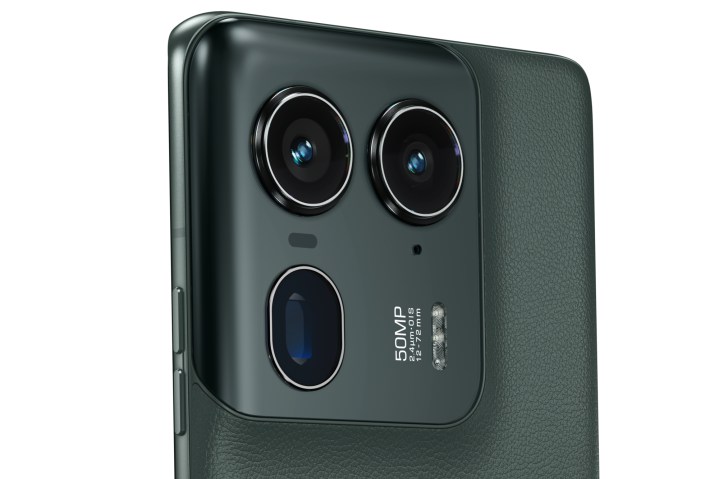
The Motorola Edge 50 Ultra’s camera setup is impressive. It boasts a 50-megapixel primary camera, a 50MP ultrawide camera with autofocus, and a 64MP telephoto camera with 3x optical zoom. The front camera also has a 50MP sensor.
On the Edge 50 Pro, the primary camera and front camera have 50 megapixels, but the ultrawide camera is 13MP, and the telephoto camera is 10MP. This, along with the chipset, is the main reason the Edge 50 Ultra is more expensive than the Edge 50 Pro.
Based on specs alone, the Edge 50 Ultra has some clear advantages in this department. While it’s great that both phones have ultrawide and telephoto cameras, these sensors have significantly more megapixels in the Ultra — likely resulting in more detailed photos.
Motorola Edge 50 Ultra vs. Edge 50 Pro: price and availability
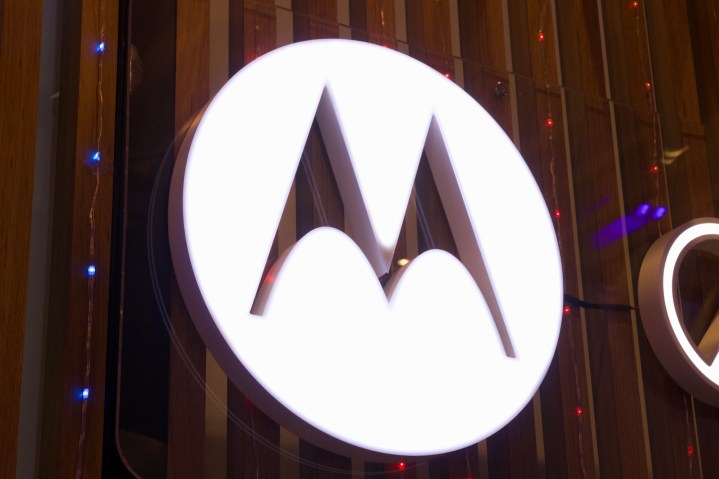
It is important to note that the availability of these phones will initially be limited. At launch, they won’t be available in the U.S. and only in selected markets across Europe, Latin America, and Asia. However, Motorola has assured us that the phones will be available in the U.S. before the end of the year.
The Edge 50 Ultra costs 999 euros (around $1,063), whereas the Edge 50 Pro starts at 699 euros (about $744). Both models include three years of Android updates and four years of security patches. However, they lag behind what Samsung and Google offer on their latest phones, such as the Galaxy S24 and Pixel 8. Both of those phones offer seven years of Android updates and security patches.
Motorola Edge 50 Ultra vs. Edge 50 Pro: Which one should you buy?
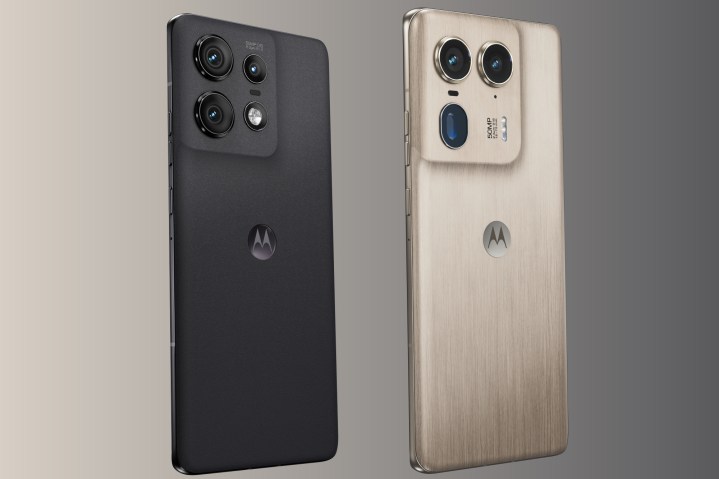
The Edge 50 Ultra is the superior smartphone, which is not surprising. However, what is surprising is how closely matched the Edge 50 Pro is to it, despite the significant price difference. The two models have similar displays and battery capabilities, some of the same cameras, and both come in vegan leather styles. The Edge 50 Ultra stands out for its better chipset, larger available memory and storage, improved ultrawide and telephoto cameras, and higher peak brightness.
It’s difficult to make concrete observations without having used these phones, but here’s what we can tell you. If you want a high-end Android phone with flagship-like features — and you don’t want it to be outrageously expensive — the Motorola Edge 50 Pro looks like a really tempting package. But if you have more cash to spend and want to go all-out (and you want a phone with a wooden back), the Edge 50 Ultra is just as promising.




